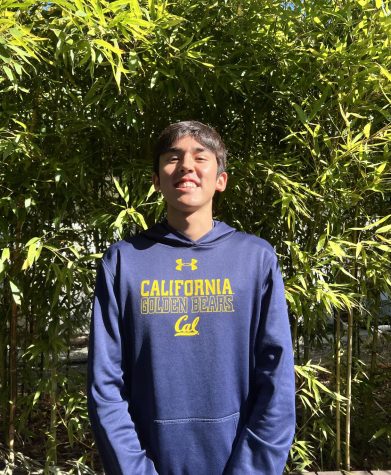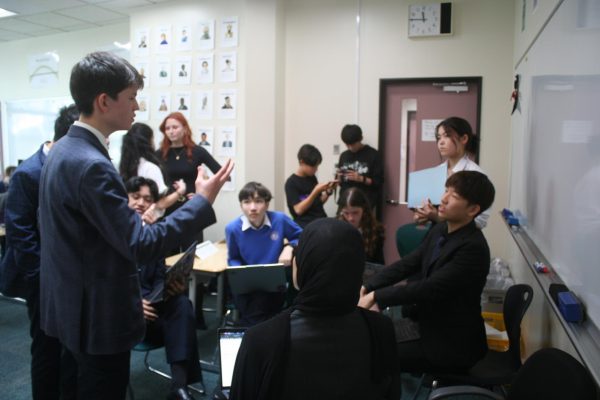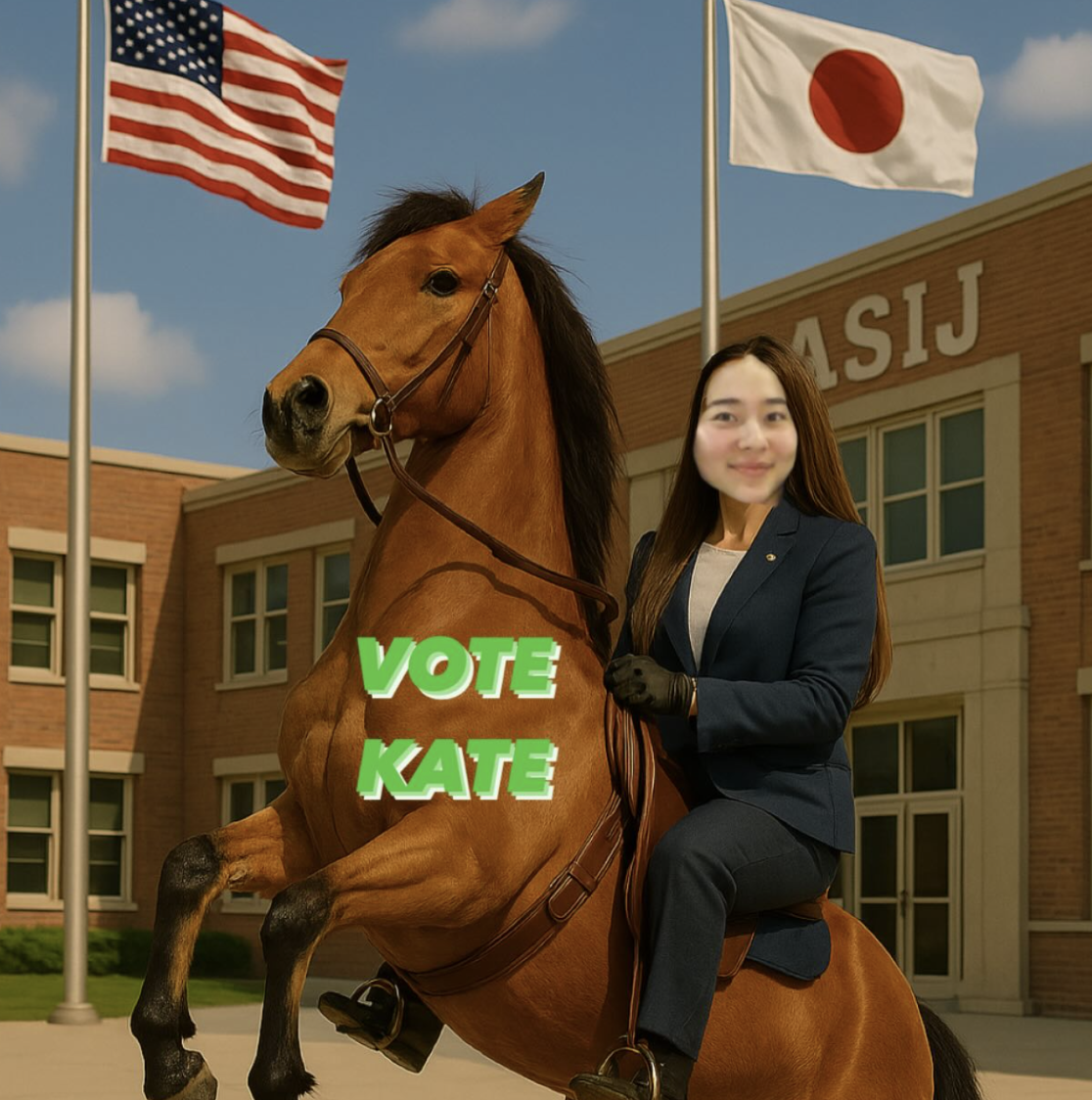An Inspirational Blue Giant
February 28, 2023
A high school student who can’t read music, yet truly believes he will become the best jazz musician in the world? It sounds delusional and foolish. But the student’s journey—one in which he maintains his forthright nature, his ambition, and his constant enthusiasm despite setbacks and criticism—makes for a story that leaves readers with a smile on their faces and a will to see him succeed.
Blue Giant, a Japanese manga written by Shinichi Ishizuka, takes place in Sendai, Miyagi-prefecture, Japan. Meet Dai Miyamoto, a teenager about to enter high school with zero plans for his future, who lives with his widowed father and sister. Although he’s on the basketball team, he doesn’t enjoy it. His best friend, whom he grew up with, is moving to the other end of the country. His situation appears bleak.
One day, by chance, Dai ends up at a jazz concert. The music he hears enchants him, and he yearns to play himself. His brother, who took him to the concert, sees the interest it provoked in Dai and decides to gift him a saxophone. Dai has never played an instrument, but he wastes no time in starting to practice.
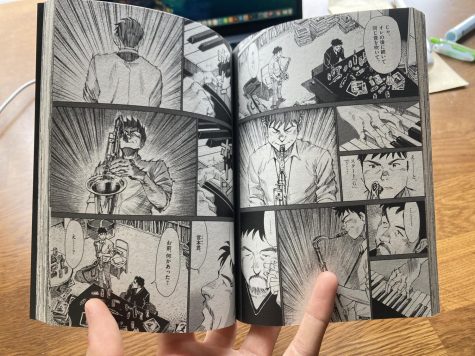
Every day, Dai goes to the riverbank where he listens to a song, hears a note, and tries to copy that sound. He does this for hours on end, continuing his routine as he begins high school. He befriends the owner of a local music shop who, after hearing him play, asks him to perform live at a local bar. To Dai, this is his chance to shine.
The day of the gig, Dai is on stage with a few others and is given the opportunity to play a solo. The audience’s reaction, however, is unexpected. One onlooker yells to stop Dai’s music because it’s “urusai,” in other words loud, obnoxious, annoying, and noisy. The other performers ask Dai to leave, and he rushes out the door, seemingly embarrassed. The shop owner tries to talk to him, but Dai apologizes without making eye contact.
Once he’s far away from the shop though, the reader finally sees Dai’s face; he’s smiling. He says to himself “donmai,” meaning “no problem” or “I’ll be all right.” He shakes off the shame he just faced, and immediately goes back to the riverbank to practice.
Dai’s extreme passion for Jazz at first goes unnoticed by those around him. Dai’s own father is mystified by him, unsure of his second son’s plans for the future, not knowing about his musical intentions. The two have a quite distant relationship due to Dai’s mother passing away.
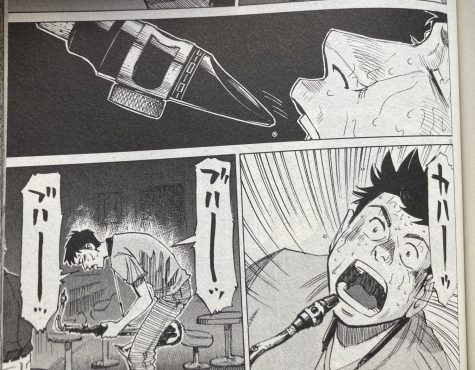 One late night, when Dai comes home from the riverbank, Dai’s father asks to sit down together and discuss what his son’s plans are for after graduation. Dai opens up about his obsession with jazz, but he can’t explain why he loves it so much. He describes it as a form of art that kindles emotion like nothing he’s ever experienced and that he feels like he can become the very best at it.
One late night, when Dai comes home from the riverbank, Dai’s father asks to sit down together and discuss what his son’s plans are for after graduation. Dai opens up about his obsession with jazz, but he can’t explain why he loves it so much. He describes it as a form of art that kindles emotion like nothing he’s ever experienced and that he feels like he can become the very best at it.
Surprisingly, his father understands, giving him a thumbs up and telling Dai he’ll be rooting for him. His friends have the same reaction to Dai’s explanation, highlighting the tight-knit and supportive circle that Dai has around him.
The story continues with Dai’s journey to becoming “the best jazz player in the world.” Despite there only being ten volumes in the original series (many Japanese manga have tens or even hundreds of volumes), the story has garnered immense popularity, and a blockbuster anime film adaptation is set to be released this February.
Dai’s belief in himself, his immovable spirit, and the community he has around him makes for a narrative that conjures a warm feeling for readers and reassures anybody chasing a dream that what they’re striving for isn’t hopeless. Despite being such a simple story compared to the many other popular Japanese comics that consist of complex fantasy worlds, sports novels where characters have superpowers, and dark horror stories where humans have chainsaws on their heads, Blue Giant still hooks readers.
Shinichi Ishizuka inspires with his narrative. Dai’s story will leave you not only wanting to read more, but also encouraged to take on the same positive outlook that Dai has.

